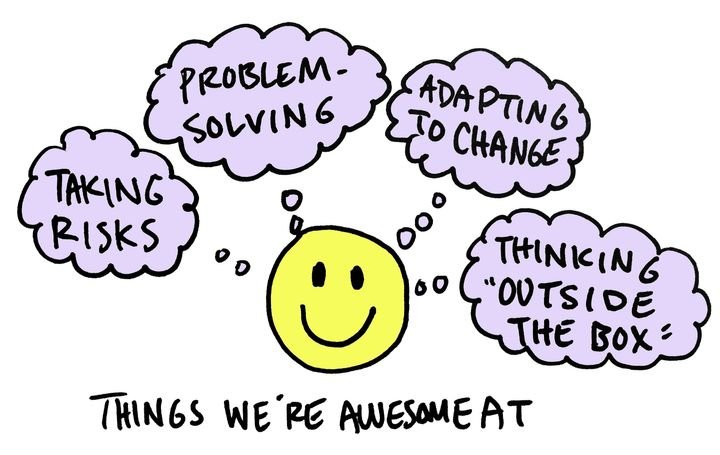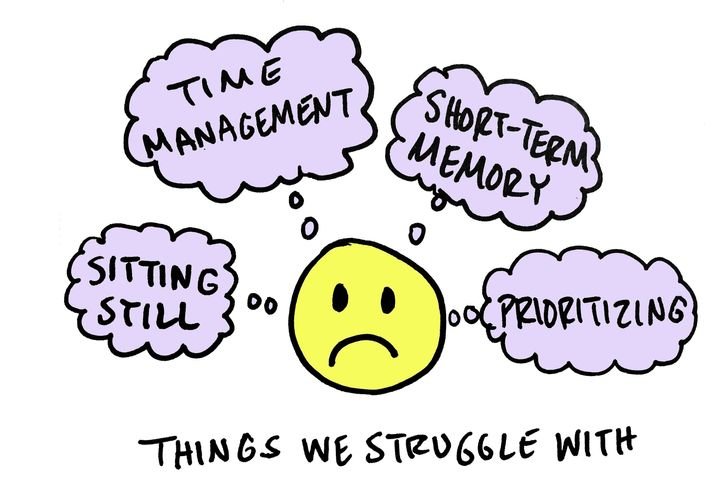October 2023 at the SECD Lab
We hope everyone had a wonderful wrap to their October month. Here at the SECD Lab, we are striving to spread awareness on many topics, including the importance of teamwork, collaboration, and self-regulation. October is also the month dedicated to ADHD Awareness. To learn more, we encourage everyone to check out some of our resources linked below.
ADHD Awareness Month
ADHD Awareness Month is an annual observance to raise awareness about Attention Deficit Hyperactivity Disorder (ADHD). The goal of ADHD Awareness Month is to educate the public about ADHD, reduce stigma, and promote understanding of this neurodevelopmental disorder. ADHD is commonly diagnosed in children but can persist into adulthood, affecting people's attention, hyperactivity, and impulsivity.
During ADHD Awareness Month people engage in activities to increase awareness and understanding of the condition. These activities may include:
1. Educating oneself and accessing resources: Learning more about the condition can help you advocate for those who have it. Check out the resources with information and tips for parents, teachers, and teens linked at the bottom of this page to get started.
2. Using one’s voice: Use social media platforms to spread information and resources about ADHD, as well as to challenge stereotypes and misconceptions.
3. Attending/organizing events: Workshops, support groups, seminars, and webinars can help connect individuals with ADHD, their families, and caregivers to share personal experiences and provide emotional support, as well as provide easy access to information about ADHD.
6. Supporting ADHD organizations: Some organizations may accept donations and raise funds to support research, awareness, and advocacy efforts related to ADHD.
ADHD Awareness Month serves as a platform for fostering understanding and empathy, encouraging early diagnosis and intervention, and promoting the well-being of individuals living with ADHD. It also encourages educators and healthcare professionals to better support those with ADHD and work toward creating more inclusive and accommodating environments.
Check out this article to learn more about ADHD Awareness Month’s history, mission, and ways to celebrate!
Teamwork & Collaboration
Teamwork and collaboration in the classroom are important for fostering a positive learning environment and helping students develop essential life skills. These skills go beyond academic knowledge and are valuable for students as they prepare for their future careers and personal lives. Here are some key aspects and strategies for managing teamwork and collaboration in the classroom:
Identify a leader
Give everyone a role
Make sure that everyone is pulling their weight
Learn to coach more and teach less
Teamwork allows students to learn from their peers, which, in turn, enhances feelings of connectedness and community among students and can add excitement to lessons. By emphasizing teamwork and collaboration in the classroom, educators can help students develop crucial skills, including effective communication, problem-solving, conflict resolution, adaptability, and empathy.
Learn more about the benefits of teamwork and tips to manage collaboration in the classroom by checking out the articles below:
What Are The Benefits Of Teamwork In The Classroom? (brightclassroomideas.com)
4 Tips to Manage Teamwork in the Classroom - Calmer Classrooms
Self-Regulation
Self-regulation is an essential skill for students to develop as it helps them manage their emotions, behaviors, and learning strategies. It empowers them to become more independent and effective learners. Here are some strategies and tips for promoting self-regulation in students:
Teach and practice coping skills: Equip students with coping strategies for dealing with setbacks and challenges. This could include mindful breathing, seeking help from teachers or peers, and maintaining a positive attitude.
Provide emotion check-ins: Help students recognize and understand their emotions. When they are aware of their feelings, they can manage them effectively. Strategies like mindfulness can be beneficial.
Help develop routines: Encouraging consistency helps students build good habits and reinforces self-regulation. For example, students can be expected to come into class, submit homework, and start work written on the board as part of their morning routine.
Prepare for transitions: Giving students a warning that they will be changing activities helps them with time-management. This can be done using something like a visual countdown timer or a bell chime for a 5-minute warning.
Provide feedback: Provide constructive feedback on students' self-regulation efforts and encourage them to reflect on their progress regularly. By doing so and developing personalized goals together, student will learn how they can improve.
Remember that self-regulation is a skill that develops over time and may vary among students. Be patient and provide guidance and support as they work on enhancing their self-regulation skills. The ultimate goal is to empower students to become more effective, self-directed learners.
For more practices to help students build self-regulation skills, check out this article!
Check out our Instagram page!
Check out our Pinterest page!
Check out our Twitter page!
Check out our TikTok page!
More Resources for October:
ADHD Awareness
Teamwork & Collaboration
A Collaborative Approach to Mistake Analysis With Older Students | Edutopia
Building Community Through Collaborative Learning | Edutopia
Self-Regulation




